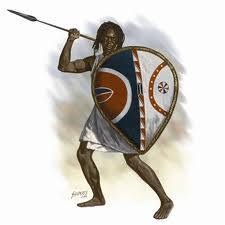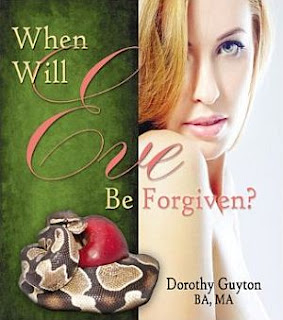I wanted people who wear locs to be able to voice their opinion, style, story, and picture with others who may or may not like the hairstyle. Each voice is an added addition to me and I have such respect for those willing to participate. I saw this posted on tumblr and had to have it in my book project for it's honesty. taweelah said this when I asked for permission to use the post 05/23/12; "yeah, that’s fine as long as you use the piece in whole, and don’t chop it up and take single lines out. good luck with the book!"
Here it is in it's original form the way, in the way it was meant to be read. Thank you so much for allowing my readers a chance to see all aspects of what this choice of hair style means to a wide range of people.
White People and Dreadlocks
I understand the idea of “cultural appropriation.” I really do. I understand the idea of minority versus majority, oppressed versus oppressor. Yet, I still think that it’s totally okay for white people to have dreadlocks.
First, “cultural appropriation” implies that a white person wearing dreadlocks is somehow hurting black people, and that’s simply not true.
Second, there’s a double standard. For a black person to think that a white person wearing dreadlocks is “cultural appropriation” is somehow an acceptable idea. Yet, if a white person said that black people getting their hair straightened was cultural appropriation, they’d be immediately deemed a racist.
Third, while I understand that dreadlocks have a deep, religious history, I don’t think that means that they’re reserved entirely for people who believe in that religion, or who are somehow connected to that history. Many monks shave their heads, but that doesn’t make it inappropriate for people other than monks to shave their heads. In the same way, it’s okay for people outside of the Rastafarian movement to have dreadlocks.
Fourth, cultures are shared, and they change. A black kid can study Japanese, and a white kid can wear a sari. We’re all just people, regardless of our race, nationality, or so on. The only problem comes in when this “cultural sharing” turns into “cultural mocking.” A white person with dreadlocks should only be a problem if the white person is being rude or insulting as a result of their dreadlocks, and 99% of the time, they’re not being rude about it at all.
Fifth, just so we clear this up, not all white people with dreadlocks smoke weed. So don’t assume that every white person with dreadlocks is being disrespectful to Bob Marley or something, and just jumping on the bandwagon to get drugs. Because that’s really, really not the case.
Finally, it’s a compliment. White people wear dreadlocks because they think it’s cool, not because they’re trying to invade black traditions or anything.
So, in the end, I don’t think that white people wearing dreadlocks is a bad thing, at all. Sure, sometimes they look like fools, but some people always just look like fools, regardless of their race or hairstyles.
Now you would think this conversation was between two young boys, maybe in high school, discussing the girls they’ve seen. Nope, not at all. These were two college-educated Black men who have traveled the world, and if you saw their resumes on paper they would seem like “great catches.”
Being friends with males always gives me a chance to eavesdrop on such honest conversations. Oh, the perks! Usually I dismiss half of the foolishness that is said, but for some reason this remark lingered in my mind. After that comment, I started to realize that more and more men and media have a thing about the exotic look. Even in media, and on red carpets, the majority of women who are dubbed as “Beautiful” are racially ambiguous.
Now, I understand that in today’s day and age we are all mixed with different cultures and ethnicity backgrounds. For example, my father is Nigerian and my mother is Black from the States (with a mix of ethnicities going back generations). So I know that the term “Black” incorporates a wide variety of cultures. But it is extremely interesting when I see in the media that when Black is mixed with Brazilian, Asian, or Indian, it is instantly termed “exotic,” which a lot of times equals instant beauty. This is not only in the media. Often men will first describe a woman by pointing out her cultural background, if it’s a mixture.
All women of color are truly beautiful. Having different traits, figures, and personalities is certainly empowering—but is only a specific part of the beauty of women of color being appreciated? Media shows us a slew of racially ambiguous women in the section for Black hair care, on magazine covers, in ads, and on the right arms of numerous men in the entertainment industry.
It’s funny. Even when I was a young girl, if a Black girl was asked what ethnicity she was, she would quickly name off five different other races. My personal fave was when a girl grabbed her hair and remarked, “Well, technically, I have Indian in my family.”
This is not to dismiss or diss any woman coming from mixed cultures, or another country. The reason why women of color are so fly is that we come in so many different shades. It just seems that more and more, in lyrics and the media, I’m beginning to hear and see the description of a woman’s race being called out to prove how fine she is. As my male friends were talking, I realized that they did not state anything about her face, body or personality—just strictly her mixed ethnicity and she received instant beauty approval. If my friend had said the woman was simply Black would his friend have pulled out the stamp of approval so easily?
I have to say that I’m happy to see that more women of color are getting shine, but is the spotlight specifically skipping over Black women?
-Ellisa Oyew
.JPG)
.JPG)
.JPG)



















